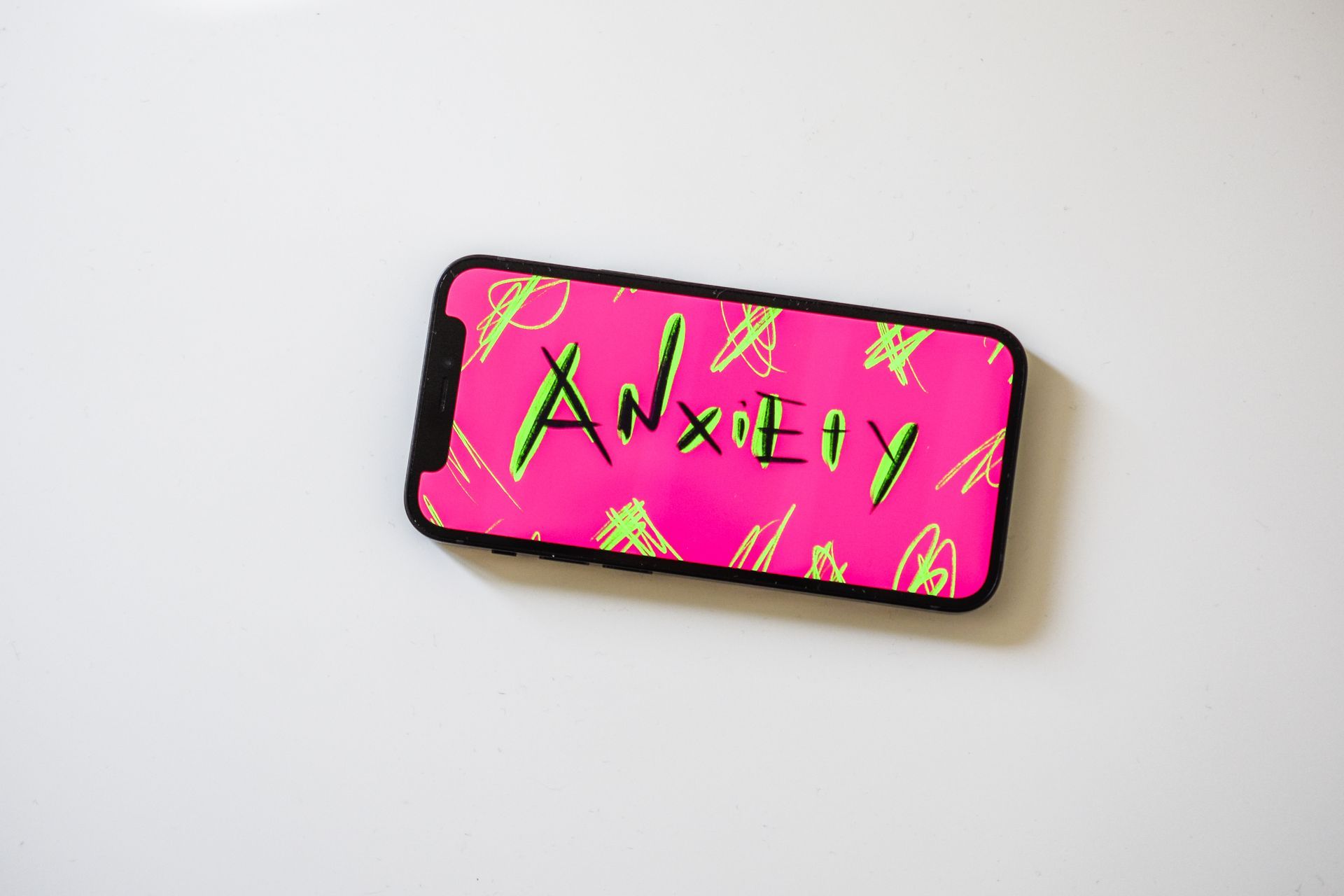- You worry about the future, money, your health, your relationships.
- Your brain won’t shut off
at night when you try to sleep.
- You always think about the worst case scenario
("What if I don't get better?", “What if the COVID-19 pandemic never ends!”)
- You just can’t seem to relax!
- People have referred to you as a
“worrier” or “worry worm.”
Anxiety and stress are common, yet they are also very disruptive.
They get in the way of your happiness and can interfere with both your physical and mental health. They make life overwhelming and just plain difficult!
What is anxiety?
Anxiety happens in your mind…
- You worry about many things such as your health, the future, relationships, finances, your loved ones, bad things happening
- You often think about
the worst case scenario and “what ifs” of life
- You find it
difficult to stop worrying
… body …
- You can’t relax, you feel
tense
- You’re prone to
stomach pain, nausea, headaches
- You feel
exhausted
- You’ve experienced sweating, shaking, shortness of breath, a rapid heart beat. Maybe you’ve had
a panic attack before
… and behaviors
- You are easily
annoyed or irritable. People may have noticed you have a short fuse.
- You
don't sleep
well
- Focusing on a task is difficult
- You
avoid certain places or situations
If you feel anxious, know that
you are not alone. Anxiety disorders are common.
More than
18% of the U.S. population experiences anxiety each year.
These numbers are even
higher in those living with a medical condition, such as
cancer, chronic illness, or coping with chronic pain. People can feel anxious or worried about one or many things. Sometimes the cause of the anxiety is well identified (fear of blood and needles, fear of social interactions, etc), and other times the anxiety is more diffuse and generalized. Anxiety can be chronic or more acute.
Why are we anxious?
We are all different when it comes to anxiety. No two people diagnosed with an anxiety disorder
(e.g., generalized anxiety disorder) are going to “look the same.” One may present as a “worrier”, often thinking about the worst case scenarios, when another another one may come across primarily as very irritable and on edge.
We often think about negative life events causing anxiety, such as a divorce, relationships issues, a job loss, financial difficulties, being diagnosed with a medical condition,
a pandemic (yes COVID-19, I’m talking about you!). Yet,
anxiety can also be triggered by life events often seen as positive. You may find yourself worrying constantly after welcoming a baby into the world, or stay up at night with anxiety after being promoted at work.And sometimes anxiety comes out of the blue, without a known cause or trigger.
Anxiety is complex and it’s caused by multiple factors, including genetics, life events, personality factors.
And while the cause of your anxiety may not always be known, its consequences on your life are likely real and overwhelming.
Despite being a fairly common issue, many people living with anxiety do not receive appropriate treatment or diagnosis. And anxiety, when left untreated for extended periods of time, can cause significant pain and suffering, and promote unhealthy coping skills (e.g., avoidance, substance use) that make life even more difficult. And while you may not be diagnosed with an anxiety disorder
(e.g., panic disorder, generalized anxiety disorder, specific phobia), anxiety
can still be disruptive.
But if you feel ready to get better, there’s hope!
Anxiety keeps your mind worried about the future. Therapy can give you the tools to claim your life back and enjoy the present moment!
Cognitive Behavioral Therapy (CBT) for Anxiety
Therapy can help you get unstuck.
You can learn tools to better manage anxiety and live life more fully. Specifically,
cognitive behavioral therapy(CBT) is considered the gold standard treatment for anxiety disorders. It’s the treatment with the most evidence supporting successful outcomes.
CBT is a form of therapy that is
structured, fairly short-term, and focuses on the present. It targets unhelpful thoughts (it’s the
C part of CBT that refers to cognitions) and teaches clients to replace those negative thoughts with more helpful ones. The goal is not to “think positive” or minimize stressors, but
to develop a more objective and adapted self-talk.
For instance,
“Diabetes is ruining my life, I’ll never be able to get better.” can become “Being diagnosed with diabetes is challenging but I have access to resources and support, and I can start making small changes to better manage my glucose levels.”
CBT also
helps clients engage in healthier behaviors (it's the
B part of CBT, targeting behavioral changes) that alleviate anxiety, by learning relaxation or mindfulness, incorporating exercise or body movement into your lifestyle, or learning breathing techniques that can help prevent a panic attack.
As an anxiety therapist, I help clients develop an anxiety toolkit that they can carry through life to better manage their symptoms.
Anxiety therapy doesn’t remove stress from your life, it gives you the tools to better manage it.
It can help alleviate the severity of your anxiety symptoms, so that you’re able to go through your day without constantly feeling overwhelmed.
What would your life look like if anxiety wasn't so overwhelming? What would you be doing more of or differently? What meaningful goals would you like to work on if anxiety wasn't getting in the way?
I am
Dr. Aurelie Lucette, a clinical health psychologist who provides
individual therapy in Miami and online throughout the state of Florida. I can help with issues related to anxiety, stress, sleep, and depression. I also specialize in therapy for adults
living with cancer ,
chronic illness, chronic pain.
I look forward to helping you find more peace and balance in life!
Get help! Schedule a free 15-min consultation






